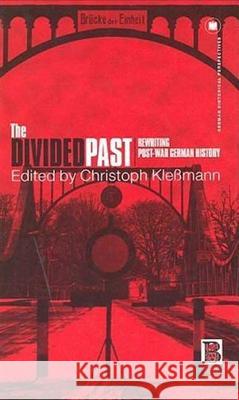The Divided Past: Rewriting Post-War German History » książka
The Divided Past: Rewriting Post-War German History
ISBN-13: 9781859735114 / Angielski / Twarda / 2001 / 224 str.
This book tackles head on the central problems of writing German post-war history in the aftermath of unification. Since 1990, historians have been debating whether the development of the Federal Republic and the East German State constituted separate histories or whether they share what should be considered a joint past. This book addresses the specific forms of segregation and interconnectedness between the 'twoGermanies' and acknowledges the asymmetry of the relationship, as well as the effect that this had on the internal and external policies of both sides. This is a book that confronts the need for historiography to break away from the traditional master narrative. It offers an alternative in the form of the differing points of view necessary to gain a new perspective on the central problem of a separate, yet joint, German post-war history. Drawing on both methodological and historiographical approaches, authors tackle this vexed problem in the context of generational and woman's history, secularization, the labour movement, and the legitimization of the "workers' state," and culminate by addressing the perennial question: how does a nation live with catastrophe?











